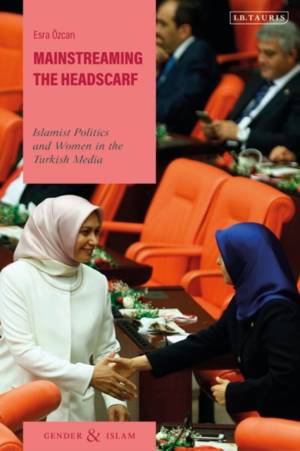
- Retrait gratuit dans votre magasin Club
- 7.000.000 titres dans notre catalogue
- Payer en toute sécurité
- Toujours un magasin près de chez vous
- Retrait gratuit dans votre magasin Club
- 7.000.000 titres dans notre catalogue
- Payer en toute sécurité
- Toujours un magasin près de chez vous
254,45 €
+ 508 points
Description
With the rise to power of the Justice and Development Party (AKP) in the early 2000s in Turkey, the headscarf that used be looked down upon by the secular middle and upper classes moved to the mainstream. It has since become a symbol of desirable womanhood. This development has pushed Turkey's secular feminists, who had been critical of the headscarf ban, to the margins.
This book is the first to trace this new phase of conservative gender politics by examining the images of women's headscarves across secular and Islamic news media. Based on the analysis of photographs and the columns of conservative women journalists, the book sheds light on how the AKP is transforming the image of womanhood. It also identifies the rise of the conservative female journalist as an important phenomenon in the country. Esra Özcan problematizes designators such as "Islamist women" or "Islamic feminists" and instead aims to understand these women in terms of their commitment to right-wing activism and politics, which has so far been ignored. An original contribution to feminist scholarship on Muslim women, this book draws on the unique perspectives of Visual Culture and Communication Studies.Spécifications
Parties prenantes
- Auteur(s) :
- Editeur:
Contenu
- Nombre de pages :
- 280
- Langue:
- Anglais
- Collection :
Caractéristiques
- EAN:
- 9781788314015
- Date de parution :
- 14-11-19
- Format:
- Livre relié
- Format numérique:
- Genaaid
- Dimensions :
- 160 mm x 236 mm
- Poids :
- 566 g







